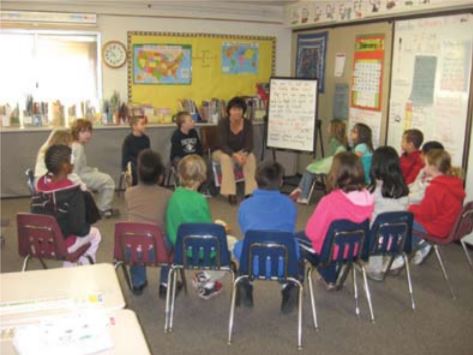
What makes a good question? Asking good questions has long been a focus in education, particularly as it relates to students’ thinking and the creation of opportunities for learning. Open-ended as opposed to closed questions are generally advocated as a means of pushing beyond knowledge and skill and opening up discussion. Often Bloom’s taxonomy is suggested as a template to help teachers ask better questions. The usual advice given is to make sure questions go beyond the knowledge level and push for application, analysis, synthesis, and evaluation.
But, how useful is this advice in the practical lives of teachers and students? Sure, when a teacher writes a test he or she can take the time to carefully craft different types of questions, but most of a teacher’s questions aren’t pre-formulated. Rather they emerge within a particular context, shaping the student-teacher interaction at that moment. Consequently, attention to ‘good questions’ might better be directed toward the act of questioning itself. Instead of merely trying to define what makes a good question, this article will explore how our questioning as teachers shapes students’ learning and lives within our classrooms. In doing so, we might then be able to answer a more substantive question: How do we harness the power of questions to advance thinking and learning?
Questioning in context
The complex nature of questions as vehicles to promote thinking can be seen in two brief vignettes taken from students’ discussions in literature circles. Sally Godinho, a colleague at the University of Melbourne in Australia, recounts a book group she observed as part of her ongoing research on learning through dialog. In this session, the teacher asked a wonderfully open-ended question, “What is the cost of war?”. Students came up with rich and varied responses, but the teacher merely took each reply in turn until she got to the last student. “Childhood.” the girl responded with a hint of uncertainty in her voice. “Yes,” the teacher responded, “that’s the one I like.” End of discussion.
In contrast, Sally witnessed another teacher stop her group’s reading after they came across a passage in which one character was compared to a vulture. “What is a vulture?” she asked, merely trying to clarify the analogy with a simple, knowledge-based question. What ensued was a rich discussion of the traits of vultures and how the character had some of those traits. This was followed by the group’s generation of alternative metaphors. These two instances of teacher questioning drive home the point made by Dillon (1994), ‘It makes no difference whether the question is higher or lower cognitive, whether it is simple or complex, whether it is fact or interpretation. What makes the difference is whether the answer to the question is predetermined to
be right, whether it is to be recited or discussed’1.
As Sally’s examples illustrate, good questions, that is questions that drive learning, don’t come from some prescribed list or simplistic set of guidelines. They arise from our motives as teachers, operate as part of a dialog we initiate with students, and exist within a larger classroom culture that privileges the exploration of ideas.Furthermore, asking good questions is only a start when it comes to promoting thinking, one must also listen to students’ answers and use them as a basis for prodding and probing students’ thinking. If, as teachers, we don’t listen to students’ thoughts, then we will be hard pressed to put forth questions that pushes them to elaborate or clarify their thinking. A good question can lead students down a certain path, but we as teachers must be ready to follow.